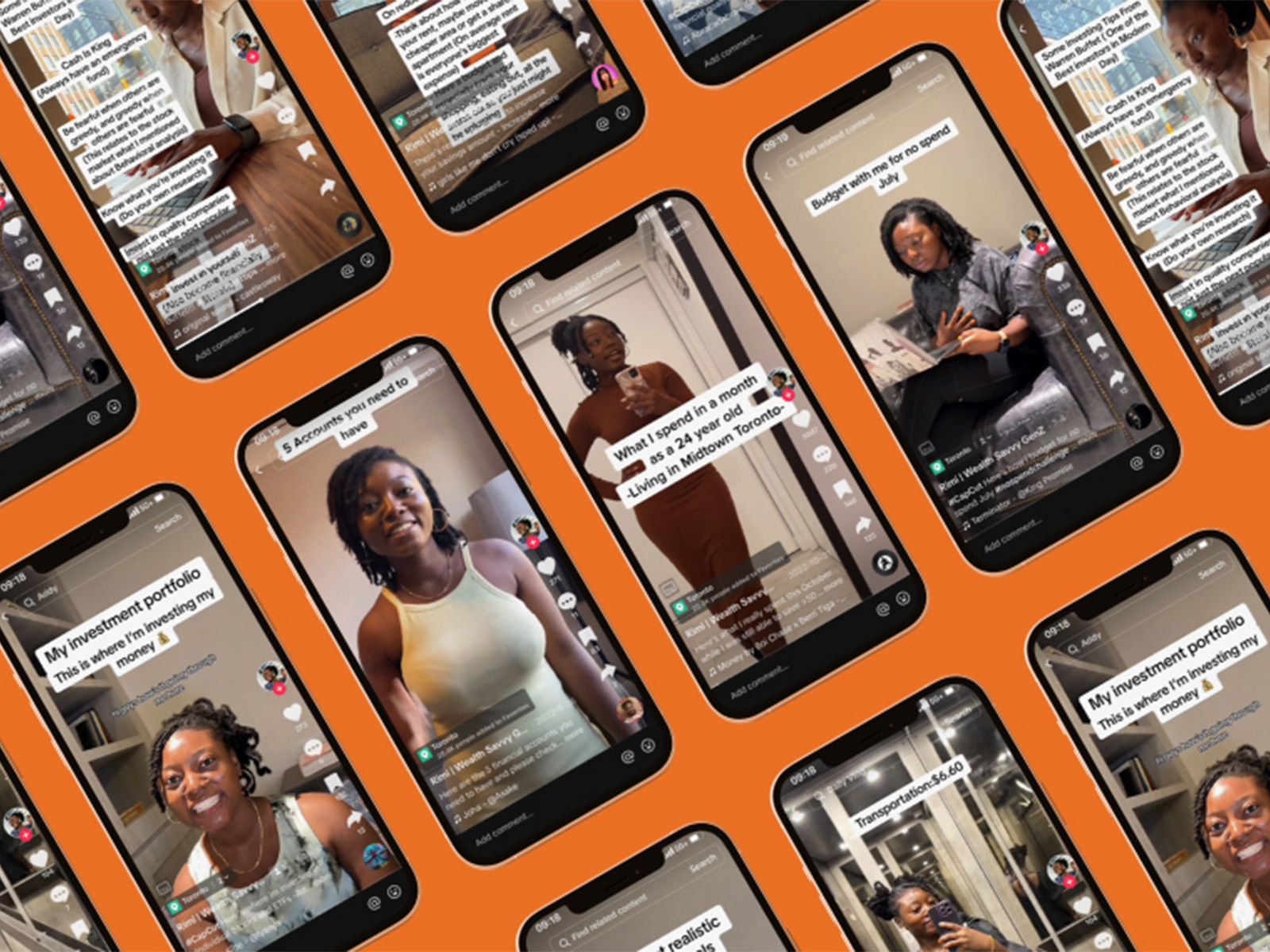Pro budgeting tips from TikTok influencer Rimi | Tangerine
When popular personal finance content creator Rimi moved to Canada from Nigeria in 2019, she had to start from scratch with her finances. Although she was already well versed in saving and investing thanks to her parents, living in a new country meant learning about a different banking system, figuring out how to earn an income, and learning how to access student loans to fund her master's degree in management and business analytics.
She was used to being the one her friends turned to with their money questions, so, feeling inspired, Rimi created her blog and TikTok account, @wealthsavvygenz. She wanted a way to chronicle her financial journey while helping to simplify the world of money.
“I wanted to have a place where I could share my knowledge about personal finance because that’s something we don’t learn in school," Rimi says. "It’s really important because people are bogged down by student loans or are living paycheque to paycheque, and they’re not able to reach their [financial] goals.”
Through fun and bite-sized educational videos, Rimi gives her more than 3,000 followers the lowdown on Canadian bank accounts and credit cards, describes how she paid off her student loans within 10 months of graduating and even breaks down her monthly spending. So how does this financially savvy TikTokker manage her money? Read on.
Rimi's favourite budgeting tools
One of the most common mistakes Rimi sees people making is not knowing where their money is going, which can lead to overspending. To avoid this mistake, Rimi uses a combination of tools to maintain her budget: As a Tangerine Chequing Account Client, Rimi uses the Left to Spend feature along with her own custom Excel spreadsheet. It's one of a number of free money management tools available to Tangerine Clients. Other popular tools that help to manage your saving and spending include Money Rules, Goals and the Automatic Savings Program.
Rimi likes using Left to Spend, because it helps her track how much money is coming in, how much is going towards expenses and savings, and how much she has left over each month. Having this info makes her life easier. This way, she knows exactly what she can afford to spend and doesn't go over budget.
She also finds a personalized spreadsheet for budgeting helpful, too. Every month, she reviews the numbers in her spreadsheet to keep tabs on her expenses and money across her accounts. Then, if something seems off, she cross-references it with the info from Left to Spend, which helps her see where her money went.
Budgeting carefully helps Rimi make better decisions with her money. Since she likes to put her dollars to work for her, she doesn’t keep a lot in her Chequing Account. If she notices her Left to Spend amount is higher in one month, she’ll move extra money to her savings and investments to make progress on her goals (like buying her first home and travelling more).
The importance of tracking your finances
If you need help saving or managing money, Rimi suggests starting a budget.
“Tracking your numbers is very important because a lot of people have no idea where their money is going. If you have no idea where your money is going, how can you save? How can you know how much you’re spending?” she explains. “Understand your monthly expenses and income, and then from there, you can start allocating money towards your savings, like an emergency fund, and investments.”
Rimi believes that once you start budgeting, you can turn it into a regular habit. “My hope is that my followers can achieve good financial habits, and it helps them actually plan for their lives,” she shares. “The goal at the end of the day is to build wealth. Not just living day-to-day but having enough money to help people around you and build generational wealth for your children and family.”
Learn More: 26 ways to level up your Tangerine experience


